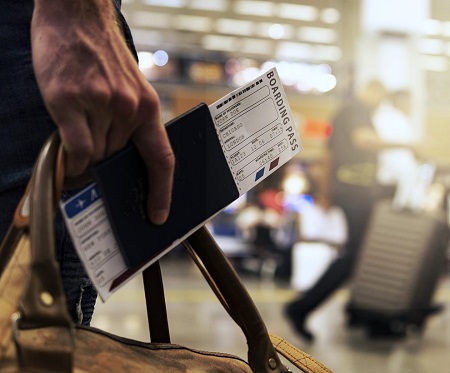How to Save Money on Corporate Travel: Essential Tips
 Corporate travel is an essential aspect of many businesses, allowing companies to expand their reach, secure new clients, and maintain relationships with existing ones. However, the costs associated with business travel can quickly accumulate, impacting a company’s bottom line. With careful planning and strategic decision-making, businesses can significantly reduce these expenses. In this article, we will explore essential tips on how to save money on corporate travel, ensuring that your company can reap the benefits of travel without breaking the bank.
Corporate travel is an essential aspect of many businesses, allowing companies to expand their reach, secure new clients, and maintain relationships with existing ones. However, the costs associated with business travel can quickly accumulate, impacting a company’s bottom line. With careful planning and strategic decision-making, businesses can significantly reduce these expenses. In this article, we will explore essential tips on how to save money on corporate travel, ensuring that your company can reap the benefits of travel without breaking the bank.
1. Embrace Technology
In today’s fast-paced world, technology plays a crucial role in optimizing corporate travel management. Utilizing a comprehensive b2b travel software solution can streamline the booking process, manage itineraries, and consolidate expenses.
These platforms often offer access to exclusive deals and discounts that are not available to the general public. By employing such tools, companies can not only save money but also enhance the overall travel experience for their employees.
2. Implement a Clear Travel Policy
A well-defined travel policy is the cornerstone of cost-effective corporate travel. Establish guidelines that outline permissible expenses, preferred vendors, and approval processes. Ensure that all employees are familiar with these policies and understand the importance of adhering to them. By setting clear expectations, companies can reduce unnecessary expenditures and prevent discrepancies in travel-related spending.
3. Book in Advance
One of the simplest yet most effective ways to save on corporate travel is to book flights and accommodations well in advance. Airlines and hotels often offer significant discounts for early bookings. Encourage employees to plan their trips ahead of time to take advantage of these savings. Additionally, being flexible with travel dates can help secure the best rates.
4. Leverage Loyalty Programs
Many airlines, hotels, and car rental companies offer loyalty programs that provide rewards and discounts for frequent travelers. Encourage your employees to enroll in these programs and use them consistently. Accumulating points can lead to free flights, hotel stays, or upgrades, which can significantly reduce travel expenses over time.
5. Negotiate Corporate Rates
Building relationships with travel vendors can lead to substantial savings. Reach out to airlines, hotels, and car rental companies to negotiate corporate rates for your business. Often, vendors are willing to offer discounts in exchange for a commitment to a certain volume of business. Establishing these relationships can lead to long-term savings on travel expenses.
6. Opt for Alternative Accommodations
While hotels are the traditional choice for business travel, alternative accommodations such as Airbnb or serviced apartments can offer cost-effective solutions. These options often provide more space and amenities at a lower cost, especially for extended stays. Evaluate the needs of your employees and consider these alternatives when appropriate.
7. Encourage Cost-Conscious Behavior
Promote a culture of cost-consciousness among your employees. Encourage them to consider the cost implications of their travel decisions and to seek out the best deals. Providing incentives for employees who consistently find ways to save on travel can further motivate them to be mindful of expenses.
8. Use Public Transportation
Encouraging employees to use public transportation when feasible can result in significant savings. In many cities, public transit is not only cheaper than taxis or rental cars but also more efficient. Provide employees with information on public transportation options at their destination to facilitate this cost-saving measure.
9. Monitor and Analyze Travel Expenses
Regularly reviewing travel expenses is essential to identify areas where savings can be made. Use data analytics to track spending patterns and highlight areas of concern. By understanding the trends in your company’s travel expenses, you can make informed decisions on where to cut costs and how to allocate your travel budget more effectively.
10. Consider Virtual Meetings
While face-to-face meetings are invaluable, not all business interactions require travel. Consider whether virtual meetings can achieve the same objectives as in-person ones. Video conferencing technology has advanced significantly, offering high-quality communication options at a fraction of the cost of travel. By reducing unnecessary trips, companies can save both time and money.
11. Review and Adjust Policies Regularly
Corporate travel is an ever-evolving landscape, and what works today may not be as effective tomorrow. Regularly review and adjust your travel policies to ensure they align with current trends and economic conditions. Staying flexible and adapting to change will enable your company to continue saving money on travel expenses.
Conclusion
Corporate travel is a necessary component of many businesses, but it doesn’t have to be a financial burden. By utilizing a b2b travel software solution, implementing clear travel policies, and encouraging cost-conscious behavior, companies can significantly reduce their travel expenses. Embracing technology, leveraging loyalty programs, and considering alternative accommodations are just a few of the strategies that can lead to substantial savings. With these tips, businesses can ensure that their travel expenditures are efficient, effective, and aligned with their overall financial goals.